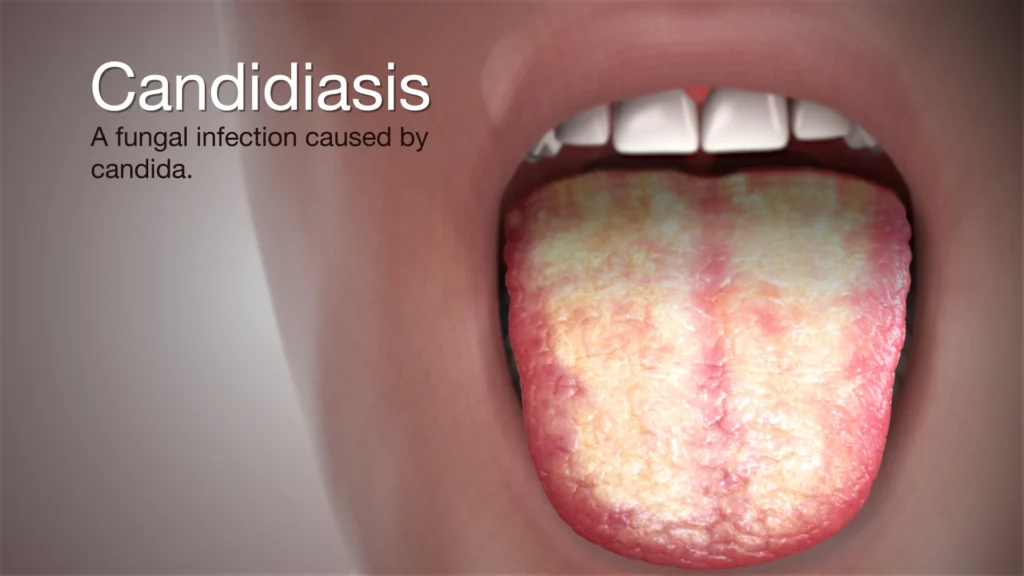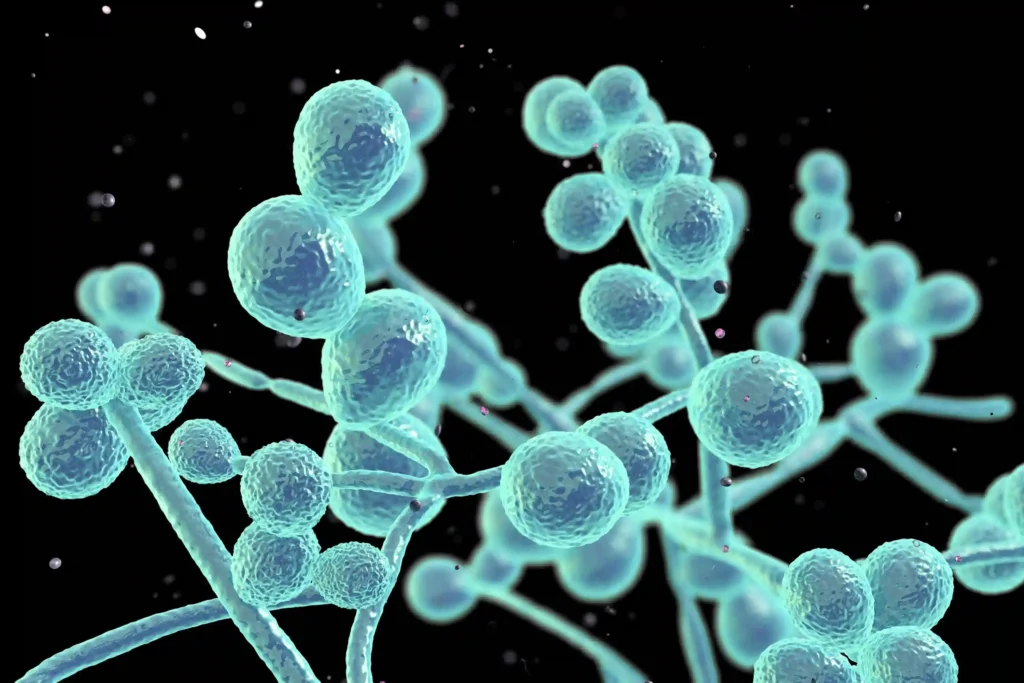Candida Infection: Causes, Symptoms and Homeopathic Treatment
Homeopathic treatment for Candida infections takes a holistic approach by tackling the underlying causes of yeast overgrowth. It aims to restore the body’s natural balance, boost the immune system, and take into account individual symptoms and lifestyle factors. This tailored method seeks to relieve symptoms and prevent future occurrences without causing side effects.
At Gupta Homoeo Clinic, we have over forty years of experience in homeopathy, providing personalized treatments that target the root causes of various health issues. Our skilled doctors have successfully treated numerous conditions, including Candida infections, by emphasizing holistic healing without adverse effects. Our dedicated team is here to offer comprehensive care, ensuring that your path to health is well-informed and fully supported.
What Is Candida Infection?
Candida Infection, commonly caused by Candida albicans, is a fungal infection that can affect various areas of the body, including the skin, nails, mouth, genitalia, and internal organs. While it’s often easily treatable, certain cases become chronic or invasive, especially for individuals with weakened immune systems.
Types of candida infection

Candida infections, commonly referred to as candidiasis, can impact different areas of the body. Here are the main types:
- Oral Candidiasis (Thrush): This condition is characterized by white patches in the mouth and throat and may cause mild soreness and discomfort when swallowing but with prompt treatment, the symptoms can be alleviated and comfort restored.
- Esophageal Candidiasis: An advanced type of thrush which affects the esophagus and can cause pain and other difficulties with swallowing. If treated promptly, symptoms can be alleviated and recovery can occur.
- Vaginal Candidiasis: Vaginal Candidiasis: More commonly known as a vaginal yeast infection, this diagnosis is characterized by itching, mild soreness and thick discharge. If treated properly, you can experience relief and control symptoms.
- Cutaneous Candidiasis: Cutaneous Candidiasis: This is primarily an issue with your skin and can contribute to an itchy red rash in areas of moisture, mainly underarms and groin area. The rash will react favorably to treatment, which, similar to ringworm rash treatment, can alleviate symptoms and promote skin healing afterward.
- Nail Candidiasis (Candidal Paronychia): This infection occurs around the nail folds, leading to redness, swelling, and sometimes causing the nail to separate from the nail bed.
- Invasive Candidiasis: A severe infection where Candida enters the bloodstream, potentially impacting internal organs. It is more frequently seen in hospitalized or immunocompromised patients.
- Diaper Dermatitis (Diaper Rash): A type of cutaneous candida infections found in infants, characterized by red, inflamed skin in the diaper region.
- Balanitis: This is the inflammation of the glans penis due to a Candida infections, often observed in uncircumcised males.
- Chronic Mucocutaneous Candidiasis: A rare condition that involves ongoing Candida infections of the skin, nails, and mucous membranes, often associated with immune system problems.
Symptoms of Candida Infection
- Oral Candidiasis (Thrush): White patches in the mouth and throat, difficulty eating or drinking.
- Vaginal Candidiasis: Itching, burning, and thick white yellowish discharge.
- Cutaneous Candidiasis: Red, itchy rash in skin folds, often with blisters.
- Invasive Candidiasis: Fever and infection in internal organs, more common in severely ill patients.
Causes Of Candida Infection Treatment
- Antibiotic use: Eliminates beneficial bacteria that normally control Candida growth.
- Hormonal changes: Pregnancy, contraceptives, and menopause can contribute to Candida overgrowth.
- Diet: High sugar and carbohydrate intake encourages fungal growth.
- Chronic illness: Conditions like diabetes increase vulnerability.
- Stress: Weakens the immune system, making infection more likely.
- Steroids: Increase the risk of fungal infections
Who is More Prone to Candida Infections?
While anyone can contract a Candida infection, some groups are more susceptible:
- Individuals with weakened immune systems: Those with HIV/AIDS, cancer patients, organ transplant recipients.
- People with diabetes: High blood sugar creates an environment conducive to fungal growth.
- Those on long-term antibiotics or corticosteroids: These medications disrupt the balance of good bacteria, allowing Candida to flourish.
- Pregnant women: Hormonal changes can increase susceptibility.
- People with poor hygiene or those wearing tight, damp clothing: This environment promotes fungal growth..
Strategies for Prevention and Management

- Hygiene: Keep susceptible areas clean and dry. Wear loose, breathable clothing.
- Diet: Reduce sugar and refined carbohydrates; consider probiotics for gut health.
- Manage stress: Practice relaxation techniques like meditation to support immune function.
- Limit antibiotic use: Take antibiotics only when necessary, and balance with probiotics.
- Stay hydrated: Drinking water supports detoxification and overall organ health.
Do’s & Don’ts
Dos :
- Hygiene & Personal Care: Ensure that the affected areas are kept clean and dry.
- Clothing & Lifestyle: Opt for loose-fitting, breathable clothing.
- Diet & Supplements: Add probiotics to your diet to help maintain healthy flora.
- Medication & Treatment: Adhere strictly to the antifungal treatments prescribed by your doctor.
- Bathing & Sexual Health: Practice safe sex and prioritize personal hygiene.
Don’t:
- Hygiene & Personal Care: Avoid using scented soaps or douches that can disrupt your natural flora.
- Clothing & Lifestyle: Don’t stay in damp clothes; change out of them promptly after sweating.
- Diet & Supplements: Refrain from consuming excessive sugars that can promote yeast growth.
- Medication & Treatment: Never self-medicate without first consulting a healthcare provider.
- Bathing & Sexual Health: Avoid engaging in sexual activity when you are experiencing symptoms.
Homeopathic Approach to Candida Infection
Homoeopathic treatment for fungal infections like Candida, takes a holistic approach, focusing on the whole person rather than just the symptoms. This involves treating factors like stress, immunity, and hormonal balance, helping the body restore its natural defenses.
Why Choose Homeopathy for Candida infection?
Homeopathy promotes long-term healing by addressing the root causes, improving immunity, and restoring the body’s balance. Remedies are natural, gentle, and customized to each individual, making it an effective alternative for managing candida fungal infection without side effects.
Consult Us at Gupta Homeo Clinic
If you are experiencing symptoms of Candida infection and want a holistic, safe approach to treatment, visit Gupta Homeo Clinic. Our qualified practitioners will assess your symptoms and create a personalized treatment plan to support your healing journey.
For more information or to schedule a consultation, visit our website guptahomoeoclinic.com. Let us help you achieve optimal health and well-being naturally.

Dr. Sachin Gupta
Homoeopathic Physician MD(Hom.)
Renowned homeopathic physician and skin specialist in Jaipur, dedicated to providing personalized, effective treatments.

Dr. Saveena Gupta
Homoeopathic Physician BHMS, DNHE
Highly regarded homeopathic doctor in Jaipur, specializing in women’s health and gynecological disorders.
Common Homeopathic Remedies for Candida infection
- Sulphur: For itching, burning, and warmth-related symptoms.
- Sepia: Effective for ringworm and skin infections, also supports immune health. You can consider homeopathy for candida skin infection treatment and cure.
- Thuja: Used for stubborn nail infections and persistent fungal symptoms.
- Graphites: For thick, sticky discharge in skin folds and eczema-like conditions.
- Calcarea Carbonica: Beneficial for frequent fungal infections and chronic fatigue.
Note: Please do consult with your doctor first, before to take any medicine. The remedies mentioned over here are for the information only. We do not recommend to take any medicine without taking prior consultation. Homeopathy treatments for any diseases and treatment vary according to your body symptoms and structure.
Disclaimer
The information shared here is meant for general educational purposes and should not be taken as medical advice. Candida infections can differ in severity and may need a personalized assessment and treatment from a qualified healthcare professional. It’s essential to consult with a licensed medical practitioner before starting or altering any treatment plan. This content should not replace professional medical guidance, diagnosis, or care. If you think you have a Candida infection or are experiencing related symptoms, seek prompt medical attention to ensure you receive the right care and avoid any potential complications.
Candida Infection FAQs
Q2. Is Candida infection sexually transmitted?
Answer – Candida infections aren’t considered sexually transmitted infections (STIs). However, engaging in sexual activity can disturb the natural balance of microorganisms in the body, which may lead to an overgrowth of Candida.
Q3. What are the treatment options for Candida infection?
Answer – Treatment varies based on where the infection is and how severe it is. Treatment options may include antifungal medications, which can be administered topically, orally, or through intravenous methods.
Q4. What causes Candida overgrowth?
Answer – Several factors can contribute to this issue, such as the use of antibiotics, elevated estrogen levels, poorly managed diabetes, weakened immune systems, and hormonal fluctuations during pregnancy.